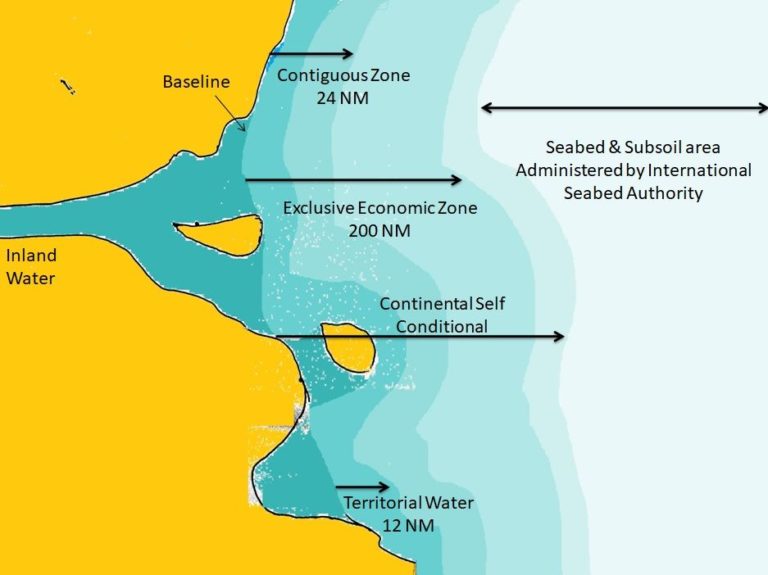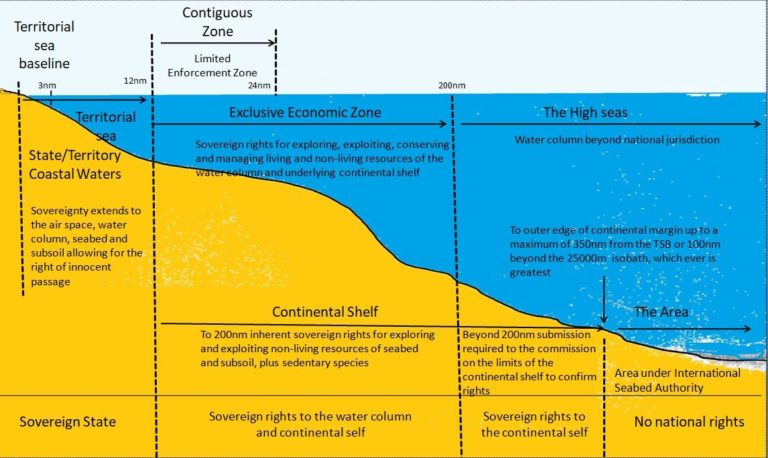IASbaba Daily Prelims Quiz
For Previous Daily Quiz (ARCHIVES) – CLICK HERE
The Current Affairs questions are based on sources like ‘The Hindu’, ‘Indian Express’ and ‘PIB’, which are very important sources for UPSC Prelims Exam. The questions are focused on both the concepts and facts. The topics covered here are generally different from what is being covered under ‘Daily Current Affairs/Daily News Analysis (DNA) and Daily Static Quiz’ to avoid duplication. The questions would be published from Monday to Saturday before 2 PM. One should not spend more than 10 minutes on this initiative.
This is a part of our recently launched, NEW INITIATIVE IASbaba’s INTEGRATED REVISION PLAN (IRP) 2020 – Road Map for the next 100 Days! FREE INITIATIVE!
We will make sure, in the next 4 months not a single day is wasted. All your energies are channelized in the right direction. Trust us! This will make a huge difference in your results this time, provided that you follow this plan sincerely every day without fail.
Gear up and Make the Best Use of this initiative.
Do remember that, “the difference between Ordinary and EXTRA-Ordinary is PRACTICE!!”
To Know More about the Initiative -> CLICK HERE
SCHEDULE/DETAILED PLAN – > CLICK HERE
Important Note:
- Don’t forget to post your marks in the comment section. Also, let us know if you enjoyed today’s test 🙂
- After completing the 5 questions, click on ‘View Questions’ to check your score, time taken and solutions.
Test-summary
0 of 5 questions completed
Questions:
- 1
- 2
- 3
- 4
- 5
Information
To view Solutions, follow these instructions:
- Click on – ‘Start Test’ button
- Solve Questions
- Click on ‘Test Summary’ button
- Click on ‘Finish Test’ button
- Now click on ‘View Questions’ button – here you will see solutions and links.
You have already completed the test before. Hence you can not start it again.
Test is loading...
You must sign in or sign up to start the test.
You have to finish following test, to start this test:
Results
0 of 5 questions answered correctly
Your time:
Time has elapsed
You have scored 0 points out of 0 points, (0)
| Average score |
|
| Your score |
|
Categories
- Not categorized 0%
| Pos. | Name | Entered on | Points | Result |
|---|---|---|---|---|
| Table is loading | ||||
| No data available | ||||
- 1
- 2
- 3
- 4
- 5
- Answered
- Review
-
Question 1 of 5
1. Question
Which of the following bodies are established under the United Nations Convention on the Law of the Sea?
- International Seabed Authority (ISA)
- International Tribunal for the Law of the Sea (ITLOS)
- Commission on the Limits of the Continental Shelf (CLCS)
- Permanent Court of Arbitration (PCA)
Choose correct code
Correct
Solution (b)
Bodies established under the United Nations Convention on the Law of the Sea include –
- International Seabed Authority (ISA)
- International Tribunal for the Law of the Sea (ITLOS)
- Commission on the Limits of the Continental Shelf (CLCS)
Permanent Court of Arbitration (PCA) is an intergovernmental organization located in The Hague, Netherlands. It is not a court in the traditional sense, but provides services of arbitral tribunal to resolve disputes that arise out of international agreements between member states, international organizations or private parties.
The organization is not a United Nations agency, but the PCA is an official United Nations Observer.
Source:
Incorrect
Solution (b)
Bodies established under the United Nations Convention on the Law of the Sea include –
- International Seabed Authority (ISA)
- International Tribunal for the Law of the Sea (ITLOS)
- Commission on the Limits of the Continental Shelf (CLCS)
Permanent Court of Arbitration (PCA) is an intergovernmental organization located in The Hague, Netherlands. It is not a court in the traditional sense, but provides services of arbitral tribunal to resolve disputes that arise out of international agreements between member states, international organizations or private parties.
The organization is not a United Nations agency, but the PCA is an official United Nations Observer.
Source:
-
Question 2 of 5
2. Question
According to “United Nations Convention on The Law of Seas (UNCLOS)”
- Territorial waters are up to 12 nautical miles.
- Contiguous Zone is up to 200 nautical miles from the shore.
- Coastal nations can exercise their right in four areas in Exclusive Economic Zone: customs, taxation, immigration and pollution.
Which of the above statements is/are incorrect?
Correct
Solution (b)
The contiguous zone extends up to 24 nautical miles from the shore. In a contiguous zone coastal nations can exercise their rights in four areas: customs, taxation, immigration and pollution.
In Exclusive Economic Zone (EEZ), which extends up to 200 nautical miles, the coastal nations have exclusive right to exploit the resources. International vessels are free to cross these waters without any restriction
Exclusive economic zone
A coastal nation has control of all economic resources within its exclusive economic zone, including fishing, mining, oil exploration, and any pollution of those resources. However, it cannot prohibit passage or loitering above, on, or under the surface of the sea that is in compliance with the laws and regulations adopted by the coastal State in accordance with the provisions of the UN Convention, within that portion of its exclusive economic zone beyond its territorial sea.
Continental shelf
Coastal states have the right of exploration and exploitation of its natural resources, however other states could lay cables and pipelines if they are authorised by the coastal state. The outer limit of a country’s continental shelf shall not stretch beyond 350 nautical miles of the baseline.

 Incorrect
Incorrect
Solution (b)
The contiguous zone extends up to 24 nautical miles from the shore. In a contiguous zone coastal nations can exercise their rights in four areas: customs, taxation, immigration and pollution.
In Exclusive Economic Zone (EEZ), which extends up to 200 nautical miles, the coastal nations have exclusive right to exploit the resources. International vessels are free to cross these waters without any restriction
Exclusive economic zone
A coastal nation has control of all economic resources within its exclusive economic zone, including fishing, mining, oil exploration, and any pollution of those resources. However, it cannot prohibit passage or loitering above, on, or under the surface of the sea that is in compliance with the laws and regulations adopted by the coastal State in accordance with the provisions of the UN Convention, within that portion of its exclusive economic zone beyond its territorial sea.
Continental shelf
Coastal states have the right of exploration and exploitation of its natural resources, however other states could lay cables and pipelines if they are authorised by the coastal state. The outer limit of a country’s continental shelf shall not stretch beyond 350 nautical miles of the baseline.


-
Question 3 of 5
3. Question
Consider the following statements about National Tiger Conservation Authority (NTCA):
- Wild Life (Protection) Amendment Act, 2006 provides for creating the National Tiger Conservation Authority
- Project Tiger is administered by the National Tiger Conservation Authority
- It is a statutory body under the Ministry of Environment, Forests and Climate Change
Which of the statements given above is/are correct?
Correct
Solution (d)
National Tiger Conservation Authority
- NTCA is a statutory body under the Ministry of Environment, Forests and Climate Change constituted under enabling provisions of the Wildlife (Protection) Act, 1972, as amended in 2006, for strengthening tiger conservation, as per powers and functions assigned to it under the said Act.
- Project Tiger is administrated by the National Tiger Conservation Authority (NTCA).
- Tiger Reserves are declared by National Tiger Conservation Authority via Wild Life (Protection) Amendment Act, 2006 under centrally sponsored scheme called Project Tiger.
Source: https://www.thehindu.com/news/national/other-states/uttar-pradesh-mulling-over-proposal-to-turn-shivalik-forest-into-tiger-reserve/article31968322.ece
Incorrect
Solution (d)
National Tiger Conservation Authority
- NTCA is a statutory body under the Ministry of Environment, Forests and Climate Change constituted under enabling provisions of the Wildlife (Protection) Act, 1972, as amended in 2006, for strengthening tiger conservation, as per powers and functions assigned to it under the said Act.
- Project Tiger is administrated by the National Tiger Conservation Authority (NTCA).
- Tiger Reserves are declared by National Tiger Conservation Authority via Wild Life (Protection) Amendment Act, 2006 under centrally sponsored scheme called Project Tiger.
Source: https://www.thehindu.com/news/national/other-states/uttar-pradesh-mulling-over-proposal-to-turn-shivalik-forest-into-tiger-reserve/article31968322.ece
-
Question 4 of 5
4. Question
Consider the following statements:
- When the fiscal deficit of the country goes up; its trade deficit also goes up.
- Current Account is the sum of the balance of trade, net factor income and net transfer payments.
Which of the statements given above is/are correct?
Correct
Solution (c)
The twin deficits hypothesis, also called the double deficit hypothesis or twin deficits anomaly, is a macroeconomic proposition that there is a strong link between a national economy’s current account balance and its government budget balance.
This hypothesis says that as the fiscal deficit of the country goes up; its trade deficit (i.e. the difference between exports and imports) also goes up.
Hence, when a government of a country spends more than what it earns, the country also ends up importing more than exporting.
Current Account is the sum of the balance of trade (exports minus imports of goods and services), net factor income (such as interest and dividends) and net transfer payments (such as foreign aid).
Source: https://www.thehindu.com/business/Economy/indias-trade-deficit-with-china-dips-to-4866-billion-in-fy20/article31973598.ece
Incorrect
Solution (c)
The twin deficits hypothesis, also called the double deficit hypothesis or twin deficits anomaly, is a macroeconomic proposition that there is a strong link between a national economy’s current account balance and its government budget balance.
This hypothesis says that as the fiscal deficit of the country goes up; its trade deficit (i.e. the difference between exports and imports) also goes up.
Hence, when a government of a country spends more than what it earns, the country also ends up importing more than exporting.
Current Account is the sum of the balance of trade (exports minus imports of goods and services), net factor income (such as interest and dividends) and net transfer payments (such as foreign aid).
Source: https://www.thehindu.com/business/Economy/indias-trade-deficit-with-china-dips-to-4866-billion-in-fy20/article31973598.ece
-
Question 5 of 5
5. Question
Who among the following were considered as the Trinity of Carnatic music, also known as The Three Jewels of Carnatic music?
- Shyama Shastri
- Tyagaraja
- Muthuswami Dikshitar
- Tolkappiyar
- Thiruvalluvar
Choose correct answer:
Correct
Solution (a)
The Trinity of Carnatic music, also known as The Three Jewels of Carnatic music, refer to the outstanding trio of composer-musicians of Carnatic music in the 18th century, being Tyagaraja, Muthuswami Dikshitar and Syama Sastri.
Source: https://www.thehindu.com/entertainment/music/kritis-with-a-healing-touch/article31971313.ece
Incorrect
Solution (a)
The Trinity of Carnatic music, also known as The Three Jewels of Carnatic music, refer to the outstanding trio of composer-musicians of Carnatic music in the 18th century, being Tyagaraja, Muthuswami Dikshitar and Syama Sastri.
Source: https://www.thehindu.com/entertainment/music/kritis-with-a-healing-touch/article31971313.ece














